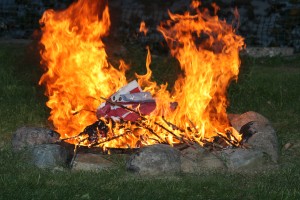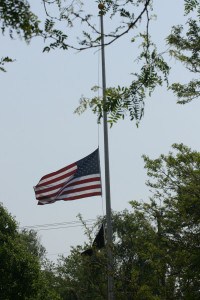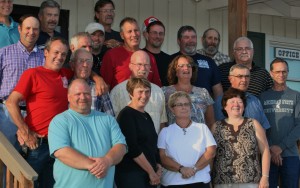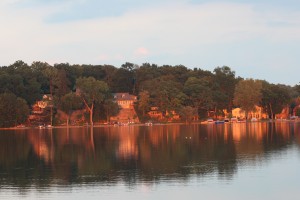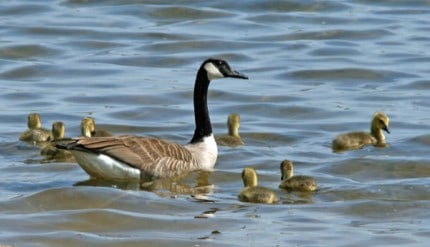
(Chelsea Update would like to thank Tom Hodgson and the Waterloo Natural History Association for the photo and information in this story.)
The giant Canada goose so familiar to anyone living on or using area lakes or golf courses was once a rare sight in Southern Lower Michigan.
Its historical range included the northern parts of Michigan and other border states, but most of the summer breeding population was in Canada. Prior to the passing of the Migratory Bird Treaty of 1918 little protection was provided for any of our native bird species. Unregulated market hunting and loss of wetland habitat had decimated the Canada goose population. The Migratory Bird Treaty gave complete protection to most native migratory bird species, and restricted the taking of others to specific hunting seasons designed to protect these birds from over-harvesting.
In the 1920’s efforts were initiated to bring back the Canada goose. The Michigan Department of Conservation began raising giant Canada geese on the state game farm, and eventually released about 2,500 birds in 30 locations throughout the state. As a result, self-sustaining populations became established that provided a new game species for hunters. Although the re-introduction project was considered a great success, it was not without some unintended and unanticipated consequences.
The original Canada goose population was migratory, leaving for southern climates in the fall and returning to breed in the spring. Most of the re-introduced birds have become permanent residents, leaving only briefly when the lakes and wetlands freeze and returning as soon as the ice was gone. As our winters have warmed, even this limited movement has become unnecessary.
Historically, Northern Michigan had been the southern limit of the Canada goose range. However, the re-introduced birds have enjoyed their greatest success in Southern Lower Michigan, especially in Jackson, Washtenaw and Wayne Counties.
In fact, 60 percent of the goose population and 90 percent of the human population in Michigan are essentially sharing the same space.
The Canada goose is a grazing animal. It consumes large quantities of grass. It prefers to feed where grass is abundant and where there is a clear view of potential predators. Manicured lawns, city parks, cemeteries and golf courses are perfect grazing grounds. Because grass has a relatively low nutrition value, large quantities must be eaten. It is also high in fiber, which helps the geese produce large amounts of manure. An adult goose can produce 1-to-2 pounds of manure each day, and unfortunately geese tend to make deposits while they are grazing. This gives a whole new meaning to the word hazard on the golf course and makes going barefoot on the lawn a less than pleasant experience.
The survival rate for most wild animal species is fairly low, especially for the young of the year. No one anticipated that the young of the re-introduced Canada goose would enjoy a 70-percent survival rate each year. It was assumed that hunting would keep the goose population to a desired level. Unfortunately, the geese have become so accustomed to people that during the hunting season many move to city parks and private lands where hunting is not allowed. As a result, even with extended seasons, hunting has not been effective in controlling goose populations.
So how do we solve this poopy problem? We’ll explore the possibilities in next Sunday’s article.










